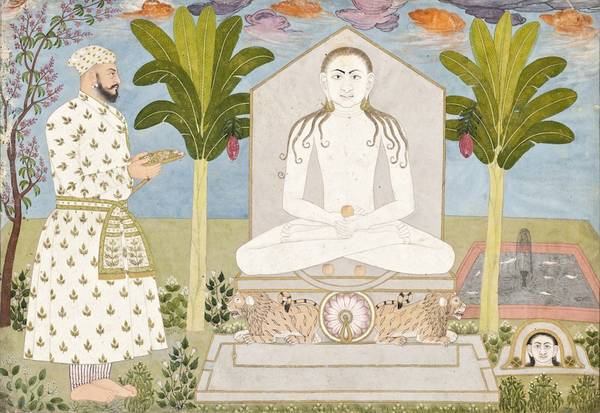
Do we really forgive on Paryushan?
I may recall an event connected with this festival about Dewan Karam Chand Bachhawat, popularly known as saviour of Jainism, during the medieval period. In 1573 AD, Rao Kalyanmal, the ruler of Bikaner, was succeeded by Rao Rai Singh. With the vision of his Prime Minister and a strategist, Dewan Karam Chand, Rao Rai Singh expanded his kingdom and brought in lots of prosperity for Bikaner state. However, Karam Chand was disillusioned as the army of Rai Singh ravaged the innocent men and the terrain. The kingdom of Rao Rai Singh extended up to Harappa in Sindh (Sindhu Desh) by defeating the forces of Baluchis.
It was on the Paryushan day that Karam Chand sought forgiveness from his masters and the captured Baluchi prisoners of war were properly clothed, fed and returned to their homes. Dewan Karam Chand also had orders issued by Rao Rai Singh for stopping of fishing activities in Sutlej, Dek and Raavi rivers. He stopped felling of trees in the desert region. Rai Singh also passed orders banning killing of animals during Paryushan / chaturmaas months.
The last day of Paryushana (Pajjosavana पज्जोसण), a Jain community festival, involves a focused prayer/meditation session known as Samvatsari Pratikramana. At the conclusion of the festival, followers request forgiveness from others for any offences committed during the last year. Forgiveness is asked by saying Micchami Dukkadam to others, which means,
“If I have offended you in any way, knowingly or unknowingly, in thought, word or action, I seek your forgiveness.”
Karam Chand Bachhawat was also a close associate and confidante of Emperor Akbar. In 1586, Dewan Karam Chand heard that temples at Dwarka were being destroyed by Navarang Khan. Fearing destruction of Jain temples in the area, he immediately petitioned Akbar for protection of Jain temples. Emperor Akbar at once issued a stamped farmaan (order) to Azam Khan of Gujarat to put Shatrunjay (Palitana) and other Jain temples in Saurashtra under the control of Karam Chand for their protection. Later, a Jain temple was also constructed by Karam Chand at Palitana in memory of his mother.
How is the festival of Paryushan celebrated? Fasting and Meditation?
Jains have two major sects – Swetambar and Digambar. During Paryushan, Jains observe a fast. The span of the fast can last from a day to 30 days or even more. In the Digambar sect, Sravakas (laymen) do not take food and/or water (boiled) more than once in a day when observing fasts, while those of the Swetambar sect observing a fast survive on boiled water and restricted food items, which is consumed only between sunrise and sunset.
On all the eight or ten days, Jains begin their day with Pratikramana, or Jain meditation, at 5.45 in the morning, followed by prayers for promoting universal peace and brotherhood. Pratikramana means turning back; also called samayika, the practitioner reflects on their spiritual journey and renews their faith. The terms “Samvatsari” and “Paryushana” are sometimes used interchangeably.
At the conclusion of the festival, the Sravakas request each other for forgiveness for all offences committed during the last year. The literal meaning of Paryushana is “abiding” or “coming together”.
